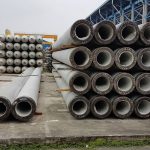Liga Asuransi – Dear Risk Managers and Risk Takers,
How’s the journey of your business unfolding? I trust it’s sailing smoothly amidst the winds of opportunity and the currents of success. Here at our blog, we’re committed to steering you through the ever-changing tides of risk management and insurance, ensuring that your business stays anchored in safety and prosperity.
Today, we embark on a voyage into the world of grain transportation – a vital artery of global trade, where the stakes are high, and the risks are real. Join us as we navigate the choppy waters of uncertainty, exploring the risks that loom on the horizon and the insurance solutions that offer a beacon of protection in the storm.
From the fertile fields to the bustling ports, from the vast oceans to the distant markets, the journey of grain is a testament to the resilience and resourcefulness of those who dare to traverse the seas of commerce. And as guardians of this precious cargo, it falls upon us to ensure its safe passage, come what may.
So, dear readers, if you’re ready to set sail on this voyage of discovery, I invite you to join us on this expedition into the heart of grain transportation risk and insurance. Share this article with your fellow adventurers, and let’s navigate the seas of uncertainty together, guided by the light of knowledge and fortified by the strength of insurance.
Fair winds and smooth sailing await – let’s embark on this journey together.
UNDERSTAND THE IMPORTANCE OF GRAIN
Grain, including wheat, rice, corn, and other cereal crops, is a staple food source for billions of people worldwide. Grain transportation is crucial for ensuring food security, meeting global demand, and stabilizing food prices. Grain-producing countries rely on transportation networks, including maritime shipping, railways, and roadways, to transport their harvests to domestic and international markets.
Similarly, importing countries depend on efficient transportation systems to access grain supplies and meet the dietary needs of their populations. Grain transportation is also vital for supporting the livestock industry, as grains are a primary feedstock for livestock feed production. Overall, grain transportation plays a central role in sustaining global food supply chains and supporting agricultural economies worldwide.
In Indonesia, grain transportation is essential for supporting domestic food production, ensuring food security, and meeting the dietary needs of the country’s population. While Indonesia is primarily known for its rice production, the country also imports significant quantities of wheat, corn, and other grains to supplement domestic supplies and meet demand.
Grain transportation infrastructure, including ports, railways, and roadways, facilitates the movement of grain from production areas to processing facilities, distribution centers, and markets across the archipelago. Efficient grain transportation is critical for reducing food loss and waste, optimizing supply chain logistics, and supporting the growth of Indonesia’s agriculture and food processing sectors.
THE SIGNIFICANCE OF RISK MANAGEMENT AND INSURANCE
Risk management and insurance play a crucial role in ensuring the safe and efficient movement of grain and similar commodities during transportation. Grain transportation is susceptible to various risks, including spoilage, contamination, damage, theft, accidents, and supply chain disruptions.
Effective risk management practices, including proper packaging, handling, storage, and transportation protocols, are essential for minimizing these risks and ensuring the quality and integrity of the grain cargo throughout the supply chain. Additionally, insurance provides financial protection against unforeseen losses or damages that may occur during transit. Cargo insurance, marine insurance, and transit insurance are common types of coverage used to protect grain shipments against physical loss or damage, liability risks, and other potential liabilities.
By implementing robust risk management strategies and securing adequate insurance coverage, stakeholders in the grain industry can mitigate risks, protect their investments, and safeguard the reliability and resilience of grain transportation systems. Ultimately, risk management and insurance are integral components of ensuring the safe and efficient movement of grain and similar commodities, supporting food security, and sustaining agricultural economies globally and in Indonesia.
VARIOUS RISKS ASSOCIATED WITH GRAIN TRANSPORTATION
Physical Risks:
Spoilage
Grain is susceptible to spoilage due to factors such as moisture, temperature fluctuations, and pest infestations. Improper storage conditions or prolonged transit times can accelerate spoilage, leading to a decrease in grain quality and market value.
Contamination
Contamination can occur during transportation if grain comes into contact with contaminants such as chemicals, toxins, or foreign materials. Contamination poses health risks to consumers and can result in product recalls, financial losses, and damage to brand reputation.
Damage during Transit
Grain shipments may sustain physical damage during transit due to mishandling, improper loading or unloading procedures, or equipment failures. Damage to grain cargo can result in loss of product, financial liabilities, and disputes between stakeholders.
Operational Risks:
Delays
Delays in transportation can occur due to various factors, including congestion at ports or terminals, traffic congestion on roadways, or logistical inefficiencies in the supply chain. Delays can disrupt delivery schedules, increase transportation costs, and impact market competitiveness.
Disruptions
Disruptions in transportation operations, such as strikes, labor disputes, or infrastructure failures, can interrupt the flow of grain shipments and cause significant logistical challenges. Supply chain disruptions can lead to product shortages, customer dissatisfaction, and financial losses for stakeholders.
Supply Chain Vulnerabilities
Grain transportation relies on a complex network of suppliers, carriers, and service providers. Supply chain vulnerabilities, such as reliance on single suppliers or transportation routes, inadequate contingency planning, or lack of visibility and transparency, increase the risk of disruptions and create vulnerabilities in the supply chain.
External Risks:
Adverse Weather Conditions
Weather-related risks, such as storms, floods, droughts, or extreme temperatures, can impact grain transportation operations. Severe weather events can cause delays, damage to infrastructure, and safety hazards for personnel, leading to disruptions in supply chains and potential losses for stakeholders.
Accidents
Accidents, including vehicular collisions, derailments, or maritime accidents, pose significant risks to grain transportation. Accidents can result in damage to cargo, injuries to personnel, environmental pollution, and financial liabilities for cargo owners and carriers.
Theft
Theft of grain cargo is a concern, particularly during transportation through vulnerable areas or when cargo is left unattended. Theft incidents can result in significant financial losses, disrupt supply chains, and compromise the integrity of grain shipments.
RISK MITIGATION
Risk mitigation strategies to minimize the likelihood and impact of risks during grain transportation:
Proper Packaging and Handling Techniques:
- Proper packaging and handling techniques are essential for preventing spoilage, contamination, and physical damage to grain cargo during transportation. This includes:
- Using appropriate packaging materials that protect against moisture, pests, and external contaminants.
- Ensuring proper loading, stacking, and securing of grain bags, containers, or bulk shipments to prevent shifting, spillage, or damage during transit.
- Implementing hygiene protocols and sanitation practices to minimize the risk of contamination from pests, rodents, or microbial pathogens.
Quality Control Measures:
- Quality control measures help ensure grain integrity throughout the supply chain, maintaining product quality and market value. This includes:
- Conducting quality inspections and testing at various stages of the supply chain, from harvesting and processing to storage and transportation.
- Monitoring grain moisture levels, temperature, and other quality parameters to prevent spoilage, mold growth, or deterioration during transit.
- Implementing quality assurance protocols and certification standards to verify compliance with regulatory requirements, industry standards, and customer specifications.
Supply Chain Visibility and Tracking Systems:
- Supply chain visibility and tracking systems provide real-time monitoring and traceability of grain shipments, enhancing transparency, accountability, and risk management. This includes:
- Utilizing technology solutions such as GPS tracking, RFID tagging, and blockchain-enabled platforms to track the movement of grain cargo and monitor environmental conditions, handling procedures, and transit routes.
- Implementing data analytics and predictive modeling to identify potential risks, optimize logistics, and proactively address supply chain vulnerabilities.
- Enhancing communication and collaboration among stakeholders in the supply chain, including producers, shippers, carriers, and insurers, to facilitate timely decision-making and response to emerging risks.
TYPES OF INSURANCE FOR GRAIN TRANSPORTATION
Cargo Insurance:
Coverage
Cargo insurance protects against loss or damage to the grain cargo during transit. It covers various risks, including physical damage, theft, spoilage, contamination, and other perils that may occur while the cargo is in transit from the point of origin to the final destination.
Scope
Cargo insurance typically applies to both domestic and international shipments of grain, regardless of the mode of transportation used (e.g., sea, land, or air). It may be customized to meet the specific needs and requirements of cargo owners and shippers, providing comprehensive coverage for the value of the grain cargo and associated transportation costs.
Marine Insurance:
Coverage
Marine insurance provides coverage for risks specific to sea transportation, including vessel accidents, maritime perils, and other hazards encountered during ocean voyages. It protects against a wide range of risks, such as hull damage, collisions, capsizing, grounding, piracy, and natural disasters (e.g., storms, hurricanes, and tsunamis).
Scope
Marine insurance is essential for protecting grain shipments during maritime transit, whether transported in bulk carriers, containers, or specialized vessels. It safeguards the interests of cargo owners, vessel operators, and other stakeholders involved in international trade by providing financial protection against losses arising from marine-related risks.
Transit Insurance:
Coverage
Transit insurance provides coverage for risks associated with inland transportation of grain by road, rail, or other modes. It protects against various perils, including accidents, theft, damage, and other hazards encountered during the transportation of grain from the port of entry or production site to warehouses, processing facilities, or distribution centers.
Scope
Transit insurance applies to domestic transportation within a country’s borders and may be extended to cover international shipments moving through multiple transit points. It offers protection throughout the entire transit journey, ensuring that grain shipments are adequately covered against risks during overland transport.
Warehouse Insurance:
Coverage
Warehouse insurance provides coverage for grain storage facilities, protecting against risks such as fire, theft, vandalism, contamination, and other perils that may damage or destroy stored grain. It covers the physical structure of warehouses, as well as the contents stored within, including grain inventories and equipment.
Scope
Warehouse insurance is essential for mitigating risks associated with storing grain in warehouses, silos, or storage facilities. It safeguards the interests of warehouse operators, grain producers, and other stakeholders by providing financial protection against losses arising from property damage, business interruption, and liability risks associated with grain storage operations.
THE IMPORTANCE OF USING THE PROFESSIONAL INSURANCE BROKER
Using a professional insurance broker for the transportation of grain offers several advantages over using an insurance agent or going directly to insurers. Here are some key reasons why engaging a professional insurance broker is important:
Expertise and Specialization
Insurance brokers specialize in insurance and risk management, with in-depth knowledge and experience in the complexities of grain transportation insurance. They understand the unique risks and challenges associated with transporting grain and similar commodities, enabling them to provide tailored insurance solutions that meet the specific needs and requirements of cargo owners and shippers.
Access to Multiple Markets
Insurance brokers have access to a wide network of insurance providers, including domestic and international markets, underwriters, and specialty insurers. This allows them to obtain quotes from multiple insurers, negotiate competitive terms, and tailor insurance coverage to the unique needs of clients. By accessing multiple markets, brokers can ensure that cargo owners and shippers receive comprehensive coverage at competitive premiums.
Independent Advice and Advocacy
Insurance brokers act as advocates for their clients, representing their best interests throughout the insurance placement process. Unlike insurance agents who may have affiliations with specific insurance companies, brokers provide independent advice and recommendations based on their client’s needs and objectives. Brokers prioritize their client’s interests and work to secure the most favorable insurance coverage and terms available in the market.
Risk Management Services
In addition to arranging insurance coverage, insurance brokers offer valuable risk management services to help clients identify, assess, and mitigate risks associated with grain transportation. Brokers can develop customized risk management strategies, provide guidance on loss prevention measures, and assist with claims handling and recovery efforts in the event of a covered loss. This proactive approach to risk management enhances the overall effectiveness of insurance coverage and helps minimize potential losses.
Claims Handling Expertise
Insurance brokers have expertise in claims handling and advocacy, ensuring that their clients receive prompt and fair compensation in the event of a covered loss or damage to the grain cargo. Brokers manage the claims process on behalf of their clients, liaising with insurance companies, adjusters, and other relevant parties to expedite claims settlement and maximize recovery under the terms of the insurance policy. These dedicated claims handling support alleviates the burden on cargo owners and shippers and helps facilitate a smooth and efficient resolution of claims issues.
TRUST L&G INSURANCE BROKER FOR YOUR MARINE CARGO INSURANCE NEEDS IN INDONESIA
Dear Cargo Owners and Shippers!
When it comes to safeguarding your precious cargo during transit, trust the experts at L&G Insurance Broker to navigate the complexities of marine cargo insurance with precision and expertise. As the leading specialist in marine cargo insurance in Indonesia, L&G Insurance Broker is your trusted partner for comprehensive coverage, tailored solutions, and unparalleled service.
Why Choose L&G Insurance Broker?
🔍 Specialized Expertise:
With years of experience and specialized knowledge in marine cargo insurance, L&G Insurance Broker understands the unique risks and challenges associated with transporting goods by sea. Our team of seasoned professionals possesses the expertise and insight to assess your insurance needs accurately and recommend tailored solutions that provide optimal protection for your cargo.
🌍 Global Network:
As part of a global network of insurers and underwriters, L&G Insurance Broker has access to a wide range of insurance markets, enabling us to secure competitive terms and coverage options for your marine cargo insurance needs. Whether you’re shipping goods domestically or internationally, we’ve got you covered with comprehensive protection that travels with your cargo wherever it goes.
💼 Personalized Service:
At L&G Insurance Broker, we prioritize your satisfaction and peace of mind. Our dedicated team of insurance advisors provides personalized service, guiding you through every step of the insurance placement process and offering expert advice and support to address your questions and concerns. We’re here to advocate for your best interests and ensure that you receive the coverage and assistance you need to protect your cargo effectively.
⚓ Comprehensive Coverage:
From bulk commodities to specialized cargo, L&G Insurance Broker offers comprehensive coverage options tailored to meet the diverse needs of cargo owners and shippers. Whether you’re transporting perishable goods, hazardous materials, or high-value cargo, we have the expertise and resources to design insurance solutions that safeguard your cargo against a wide range of risks and perils.
🛠️ Risk Management Support:
Beyond insurance placement, L&G Insurance Broker offers proactive risk management support to help you identify, assess, and mitigate risks associated with marine cargo transportation. Our team can develop customized risk management strategies, provide guidance on loss prevention measures, and assist with claims handling and recovery efforts to ensure the safe and efficient movement of your cargo throughout the supply chain.
⛵ Smooth Sailing Guaranteed:
With L&G Insurance Broker by your side, you can enjoy peace of mind knowing that your cargo is in safe hands. Whether you’re shipping across the archipelago or around the world, trust L&G Insurance Broker to provide the expertise, coverage, and support you need to navigate the seas with confidence.
Set Sail with L&G Insurance Broker Today!
Don’t leave your cargo unprotected – partner with the specialists in marine cargo insurance at L&G Insurance Broker and ensure smooth sailing for your shipments. Contact us today to learn more about our insurance solutions and how we can help safeguard your cargo against the risks of the sea.
Fair winds and following seas await – choose L&G Insurance Broker for your marine cargo insurance needs in Indonesia!
—
MARINE CARGO INSURANCE IS MORE PROFITABLE WITH MOP (Marine Open Policy) – DON’T WASTE YOUR TIME AND CONTACT US NOW
24 JAM L&G HOTLINE: 0811-8507-773 (CALL – WHATSAPP – SMS)
website: lngrisk.co.id
Email: customer.support@lngrisk.co.id
—



















